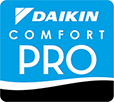Efficient and effective commercial heating solutions are essential for not only maintaining a comfortable environment within a commercial building but also reducing energy consumption and operating costs. Choosing the right heating system and maintaining its performance can be a complex task, and requires a fine balance between comfort, efficiency, and sustainability.
Our team at Holy City Heating & Air, LLC offers AC installation, repair, heating maintenance, plumbing, and ductless HVAC services in Charleston, SC. We are committed to helping you find the perfect commercial heating solution for your specific needs.
We will explore the key aspects of efficient and effective commercial heating solutions, from selecting the right equipment to implementing proper maintenance practices so that you can make informed decisions for your Charleston-based business.
Understanding Heating System Types
To make an informed decision about commercial heating solutions, it’s crucial to understand the different types of heating systems available. The primary commercial heating systems include:
- Furnaces: These forced-air systems use a variety of fuels, such as natural gas, propane, or electricity, to heat air, which is then distributed throughout the building via ductwork.
- Boilers: Boilers heat water, producing steam or hot water, which is circulated through pipes and radiators to provide warmth. They can use natural gas, oil, or electricity as a fuel source.
- Heat pumps: These systems extract heat from the air or ground, providing both heating and cooling capabilities. They are highly efficient options for commercial heating, especially in milder climates.
- Ductless heating systems: Also known as mini-split systems, these devices provide zoned heating and cooling without the need for ductwork, offering efficient climate control for smaller commercial spaces or buildings with structural limitations.
Selecting the Right Equipment
Choosing the appropriate heating system for your commercial building depends on various factors, such as the size and layout of the space, regional climate, and the desired balance between energy efficiency and indoor comfort. When selecting a commercial heating system, consider the following:
- Energy efficiency: Opt for systems with higher energy efficiency ratings to minimize energy consumption and lower operating costs.
- Size and capacity: Properly sizing your heating system is critical to avoiding short cycling, inadequate heating, or excessive energy consumption. Consult with our professionals to assess your building’s heating requirements and choose the most suitable equipment.
- Fuel source availability: Consider the available fuel sources in your region, as well as the projected costs and environmental impacts.
- Building layout and infrastructure: Assess whether your building can accommodate specific heating systems and their requirements, such as ductwork, radiators, or outdoor units.
Regular Maintenance and Efficiency Optimization
Periodic maintenance is paramount to keeping commercial heating systems operating efficiently and effectively. Proper maintenance not only extends the life of your equipment but also ensures optimal heating performance to minimize energy use and maintain a comfortable indoor environment. Key maintenance tasks include:
- Routine inspections: Schedule regular inspections of your heating system to detect potential issues and address them before they escalate, preventing unexpected breakdowns or costly repairs.
- Filter replacement: Replace air filters regularly to maintain proper airflow, reduce strain on the system, and protect indoor air quality.
- Equipment cleaning: Keep all components, such as heat exchangers, radiators, and coils, clean and free from debris or dust buildup that can hinder performance and efficiency.
- Calibration and adjustments: Regularly check thermostats, control systems, and dampers to ensure accuracy and make necessary adjustments for optimal performance.
Zoning and Building Automation
To further enhance the efficiency and effectiveness of your commercial heating system, consider implementing zoning and building automation technologies. These measures allow for more granular control of your heating system, improving both energy use and occupant comfort.
- Zoning: Zoning divides a building into separate areas, each with independent temperature control. This enables tailored heating and cooling for specific sections, reducing energy waste and enhancing overall comfort.
- Building automation: A building automation system (BAS) allows for central control of various building systems, such as heating, ventilation, and air conditioning (HVAC), lighting, and security. By integrating your heating system with a BAS, you can improve monitoring, scheduling, and control over its performance, optimizing both energy use and indoor comfort.
Enhancing Building Insulation and Sealing
The effectiveness of your commercial heating system can be greatly impacted by the overall insulation and sealing of your building. By addressing thermal leaks and enhancing insulation, you can minimize heat loss and maximize the performance of your heating system. To improve your building’s insulation and sealing, consider the following:
- Inspect and seal gaps or cracks in walls, ceilings, and floors. Focus on areas around windows, doors, and ductwork.
- Upgrade insulation in walls, ceilings, and attics, ensuring uniform coverage for optimal heat retention.
- Install weatherstripping and door sweeps on exterior doors to prevent drafts and avoid heat loss.
Unlock the Potential of Your Commercial Heating System
Efficient and effective commercial heating solutions are crucial to maintaining a comfortable environment, reducing energy costs, and enhancing the performance of your heating system. As a leader in HVAC services, we are dedicated to helping you make informed decisions about the heating systems that best suit your Charleston-based business.
From equipment selection and optimization to maintenance, zoning, and insulation upgrades, we provide the expertise and services necessary to maximize your commercial heating investment.
Don’t wait to see the benefits of a well-designed and properly maintained commercial heating system — reach out to our experienced team at Holy City Heating & Air, LLC today for a consultation on our heating service in Charleston!






